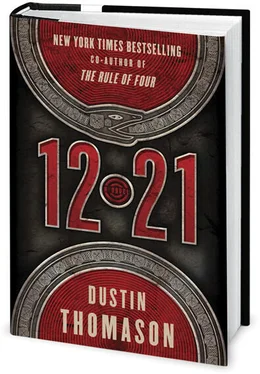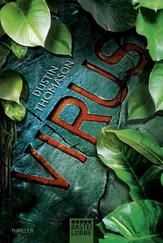I went into the palace, and navigated past the housekeepers, tailors, and concubines. The sweat house is on the top floor, a domed room in the tower, a most holy place for divination and communication with the overworld. As with the secret meals and other rituals, it is most often restricted to the king’s retinue.
When I arrived in the sweat bath, I found the king alone, an event I cannot remember in a thousand suns. His face was gaunt and looked less holy than I had ever before seen. There was not even a slave or lower-rank wife in the room, ready to satisfy his urges.
The king spoke:
—I have brought you here to see the creation of the great feast, Paktul, so that you may record it in the great books for all posterity.—
I bent down on both knees beside the hot coals, and the heat was unbearable. But to be inside the sweat house was considered a great honor, and I would show no sign of suffering. I spoke:
—Highness, we must record the great feast, yes, but I would ask you again to explain how the gods have blessed us with this feast but have shown us no mercy elsewhere. So that I may record it in the great books with proper care, may I understand why we feast today, when all other days there is famine?—
The king’s jaw clenched. His crossed eyes looked beyond me, as if he was trying to control his anger. His grasp on the royal scepter was rigid. When I finished, he did not rise or bellow; he did not call for the guards to take me away. He only looked down at my hand and pointed at my ring, symbol of the great monkey scribes who came before me.
And he spoke again:
—This ring you wear, the monkey-scribe ring, symbol of your station, how do you think it compares to the crown of the gods I wear upon my head? There is nothing I desire more than to be able to share this burden with my people and to explain the compromises I make to ensure the gods are at peace. This burden is not one that can be learned through books but only by those who came before me, my fathers, who once ruled over our terraced city. It is hardly a burden one who wears the monkey-scribe ring can fathom.—
With this, the king rose in his nakedness. I thought he might strike me, but he only instructed me to rise from my knees. He wrapped himself with a loincloth around his waist and commanded me to follow him into the royal kitchen.
It is rumored there is nothing in the world the royal cooks cannot prepare to the king’s taste. They will send assistants for a week’s walk to secure guava or mombin that grows only in the highest mountains or to trade with tree people for sweet potato that grows only in the shade of a single ceiba in winter.
I followed his holiness, Jaguar Imix, and I saw the great serpentine flow of these men, devoted to their art, working to finish the preparations for the great ceremonial feast. Every man had an assignment. There were those devoted to the preparation of the sauces and garnishes, who added florets of manioc plant to the various mixtures of chili paste, cinnamon, cacao, allspice. The actual cooking was assigned to others, who presided over large open spits in every corner of the room, grilling meats before adding them to the rich stews stirred in enormous vats at the kitchen’s center.
We passed through the tremendous heat of the cooking fires, almost as stifling as the sweat house itself. We were headed for the slaughterhouse, I knew. When we arrived at the door, the king flashed a beaming smile of jade at me.
He spoke:
—Low scribe, there can be no greater divination than the one I received twenty moons ago, the commandment from Akabalam, which will change Kanuataba forever and be our salvation. For nearly a year I have taken in this blood, and it is time for my people to share in my great source of strength. According to my royal spies, these rituals have become commonplace in other nations. Not just among the nobles but also among the lower tiers, and they have sustained themselves by them for many moons.—
I followed him into the slaughterhouse.
Blood coated the floor and soaked my sandals. More than two dozen carcasses hung, skinned and decapitated, disemboweled, blood-drained, and disjointed. The slaughter men were separating meat from the bone, each leg and arm providing a different cut that went into a pile of thick fillets. The slaughter cooks used blades of chert to prepare the meat for cooking, trying to conserve every precious sliver for the feast. It took me a moment to comprehend what these appendages were.
Men’s bodies from meat hooks!
The king spoke:
—Akabalam has commanded that we should partake, that, through this meat, we will absorb the power from those souls that inhabited these corpses. I and my closest minions have gained such power from feasts on flesh, having consumed more than twenty men in the three hundred suns past. Now Akabalam has divined that he wishes to concentrate the strength of ten men in every man of our great nation. Mantises consume the heads of their mates to survive; blessed are they, and, like them, we will all consume the flesh of our own kind.—
And as he finished speaking I knew: This was no god ordained for re-commitment of piety. This was something much more terrifying, which no one ever had to teach me to fear.
* * *
Much has passed in Kanuataba since the last inscription. Sixty suns have been born from the color of rebirth and died into blackness. Akabalam is spread to every corner of the city, on word that the king had sanctioned it at the feast in the great plaza, when Jaguar Imix fed the meat of our enemies’ noblemen to his own. With no rain come to feed the milpas, cooking pots are filled with the meat of the dead, not a single part wasted, every scrap pulled off the bones. The sole prohibition dictated by the king was that no man should eat his own son or father, daughter or mother, as the gods had forbidden it. But I have seen child slaves forced to prepare meals without the meat, only to be sacrificed as animals, salted in seasoning baths of their own making.
I have not partaken in Akabalam, nor have I allowed Auxila’s daughters. We survive on leaves and roots and small berries alone. One Butterfly and Flamed Plume would have already become food for the masses were they not protected by my station. The orphans of the city were among the first sacrificed, but in my cave they have been saved. They are watched over by my spirit macaw. The girls do not leave, as I have commanded them, for the savages in the streets are many and ruthless, and they would take the life of any child as sustenance.
The king has disappeared into the recesses of the palace for a royal divination, and none but Jacomo the dwarf, the queen, and the prince are permitted to visit him. The council was disbanded. Jaguar Imix proclaimed that no man can hear the call of the overworld but he and that the council was filled with false prophets! Jacomo the dwarf stands on the palace steps every sunrise. He reads the demands of the king and the sacrifices that must be made to please the gods.
By every setting of the sun, the sacrifices have been made; men and women and children, some noble, brought to the top of the altar by the executioners, their hearts extracted and innards cut out before being fed to the masses.
Yet with each sacrifice, there are more doubts in the streets of Kanuataba of Jaguar Imix’s power. I have heard dissent among the commoners. The people live in fear that they shall be sacrificed next. They whisper that Jaguar Imix has lost his channel to the gods, that a curse in his mind has confused his thoughts.
And what power has Akabalam given us? No rain has come to the milpas, no reprieve sent from the overworld to nurture the crops that sustain us.
* * *
So much is changed, so much horror! Death is all around us, the city in its cold black embrace. More than a thousand are dead by last report, and many more are cursed, awaiting death. I was right to fear as I did. The curse of Akabalam has fallen over many, sucking out their spirits into nothing, leaving them unable to pass into the dream world, where they may commune with their gods.
Читать дальше












